Introducing The FGM/C Policy Advocate Care Fund
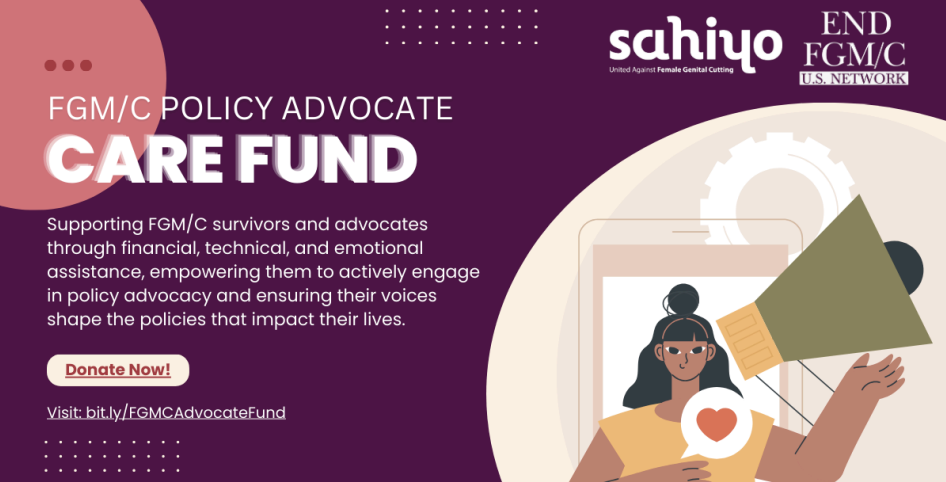
The newly established FGM/C Policy Advocate Care Fund provides vital resources and support to those tirelessly working to prevent FGM/C and support survivors. Created through a partnership between Sahiyo U.S. and the U.S. End FGM/C Network, this fund aims to: Empower survivors and individuals from communities impacted by FGM/C Enable survivors, activists, and advocates to actively engage in education and policy advocacy Ensure that activists are fairly compensated for their contributions, recognizing that they are often overlooked and underfunded. Advocates working to end FGM/C face numerous challenges including resistance from communities, lack of resources, and risks to their health and mental well being. Finding ways to support these advocates can help ensure individuals can continue their vital work to end FGM/C, effectively and safely. The goal of the fund is to empower activists, advocates, and survivors to create meaningful change in their communities and end this harmful practice. Your donation is essential in sustaining the critical work of advocates dedicated to ending FGM/C. By donating to The FGM/C Policy Advocate Care Fund, you’re directly empowering advocates, ensuring they have the financial, technical, and emotional support necessary to continue their impactful work. Your contribution strengthens their capacity, safeguards their well-being, and creates lasting change in the world. Donate Here. (P.S. don’t miss out on our upcoming event, “4 Essential Strategies for Self and Community Care in Activism,” with Farzana Doctor, on Tuesday, September 10th at 9:00 AM PST/ 12:00 PM EST. Register Here.)
Reflecting on Virtual and In-Person Sessions for Voices to End FGM/C Workshop 2024
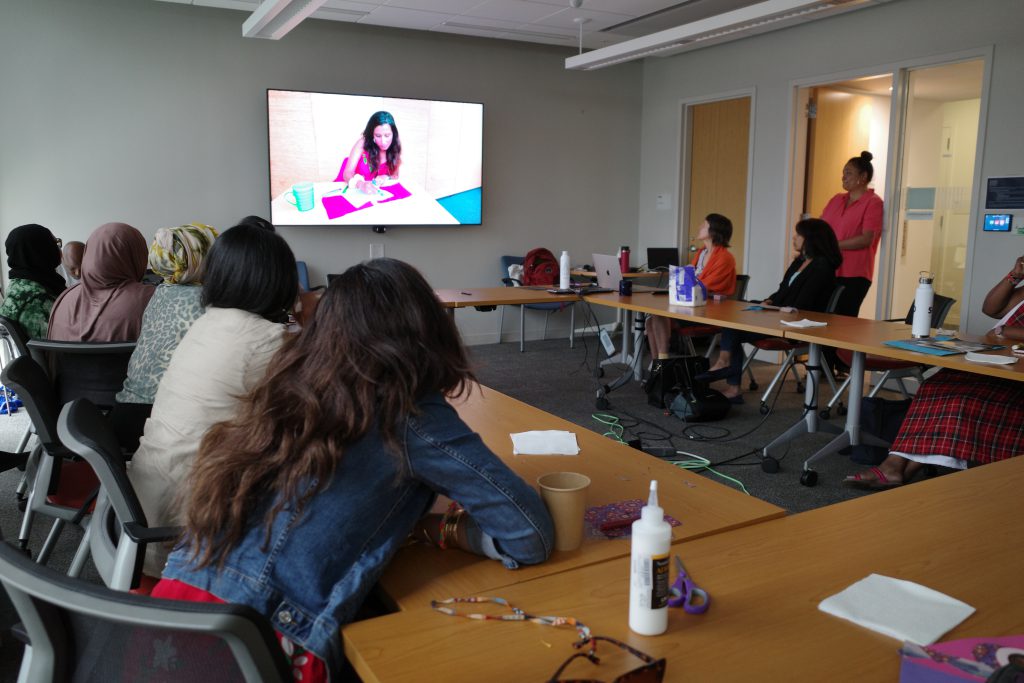
Sahiyo completed our 2024 Voices to End FGM/C digital storytelling workshop, welcoming 10 new storytellers to our ninth cohort. Since 2018, this initiative has united over 80 survivors, advocates, and community members in sessions designed to empower participants to share their personal stories and experiences with FGC. This year’s workshop was held in a hybrid format, starting with two virtual sessions on May 28 and June 4. These initial online gatherings allowed participants to introduce themselves, share their experiences, and begin forming deep, meaningful connections. The virtual sessions provided a safe and intimate space for storytelling, laying the groundwork for the in-person sessions that followed on June 22-23 at the George Washington University Milken School of Public Health in Washington, D.C. Once everyone gathered in person, the excitement was palpable as participants, who had bonded over their virtual interactions, finally met face-to-face. The atmosphere was like a reunion of old friends, filled with warmth and familiarity, as the intimate stories that had already been shared created strong bonds among them. During the in-person sessions, participants engaged in various activities designed to deepen their reflections and creative expressions as they recorded the audio and pieced together the visuals for their digital stories. A particularly touching moment was when a participant gifted beautiful scarves to the workshop facilitators, as a way to express her gratitude for the workshop and the supportive community it cultivated. She explained that this gesture is a custom in her community in Ethiopia, symbolizing appreciation and connection. To capture the inner workings and overall essence of the workshop, we invited a videographer and photographer to document the event on our last day together. They took photos and b-roll footage to create a behind-the-scenes video about the workshop. Facilitators and participants were interviewed about their roles and experiences, and storytellers shared their hopes and aspirations for their videos. These interviews provided deeper insights into the personal journeys, the impact of the workshop, and how the Voices to End FGM/C program has grown over the past few years. Both the virtual and in-person sessions were transformative, allowing participants to engage in a supportive space where interactions fostered a strong sense of community and solidarity. We are excited to share their stories with all of you in the coming months, showcasing the participants’ courage and commitment to ending FGC. To learn more about the Voices to END FGM/C program click here.
Sahiyo releases new research report on February 6th
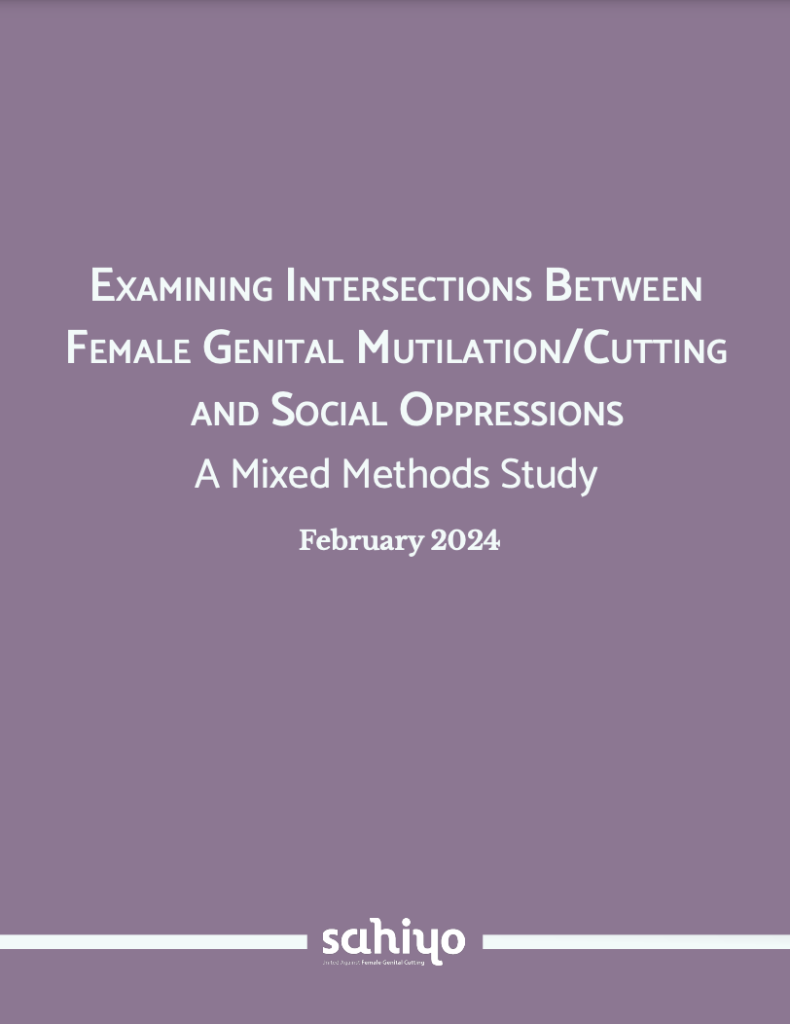
Sahiyo U.S. is excited to announce the publication of Examining Intersections Between Female Genital Mutilation/Cutting And Social Oppressions: A Mixed Methods Study, the second of three reports from our Critical Intersections Research Project. Inspired by our 2021 webinar, and building upon themes derived from our initial body of work released in 2023, this new report is based on original research from a mixed-methods survey with over 100 respondents, including individuals and organization that work within and beyond the FGM/C sphere. We are proud to share this report on February 6th, International Day of Zero Tolerance for FGM/C, as part of our survivor and advocate-led original research project. The report examines two main forms of oppressions intersecting with FGM/C: systemic forces, including discrimination within institutions, as well as interpersonal and communcal factors, such as discrimination within practicing communities and the anti-FGM/C movement itself. This body of work also identifies challenges and opportunities for cross-collaboration with other social justice movements and provides recommendations for how to implement this intersectional work. This research is meant to support advocates working in FGM/C to better understand how these intersecting oppressions affect the movement to end FGM/C, and connect fellow activists and social change makers to understand the larger forms of inequity at play and unite in ending these universally oppressive systems. We aim to strengthen anti-FGM/C efforts by addressing the roots of inequity and inequality and to create stronger collaborative movements across various human rights issues. Read the report here. Learn more about the Critical Intersections Research Project here.
Sahiyo publishes second report from Critical Intersections Research Project

Sahiyo U.S. is excited to announce the publication of Examining Intersections Between Female Genital Mutilation/Cutting And Social Oppressions: A Mixed Methods Study, the second of three reports from our Critical Intersections Research Project. Inspired by our 2021 webinar, and building upon themes derived from our initial body of work released in 2023, this new report is based on original research from a mixed-methods survey with over 100 respondents, including individuals and organization working within and beyond the FGM/C sphere. We are proud to publish this report, as part of a survivor and advocate-led original research project, on February 6th, International Day of Zero Tolerance for FGM/C. The report examines two main forms of oppressions intersecting with FGM/C: Systemic forces, such as discrimination within systems and institutions, included intersections between several forms of oppression such as xenophobia and racism with institutions like law enforcement. Many survey participants identified fear of the criminal justice system as a challenge for survivors and the end FGM/C movement; interestingly, a majority of every group reported to work with the legal system and law enforcement (in and beyond the FGM/C sphere). Interpersonal and communal forces, such as discrimination from within practicing communities and the movement to end FGM/C, introduced complexities for survivors and activists alike. Interestingly, individuals working in the FGM/C sphere most commonly identified interpersonal challenges (rather than systemic forces) such as gender discrimination and other forms of gender-based violence as challenges that girls and women in FGM/C-practicing communities face. Additonally, a strong discord around the framing of FGM/C (‘mutilation’ vs. ‘cutting’) suggested a significant barrier to collaborating within the FGM/C sphere and beyond. Lastly, the study examined the potential for cross-collaboration between the anti-FGM/C sphere and other social justice movements. Though participants reported an overwhelming desire for cross-collaboration across the demographic groups, they also identified many significant challenges for meaningful cross-collaboration. Participants also provided opportunities for collaboration. From the various challenges, opportunities, and intersections of oppressions, eight recommendations for cross-sector collaboration and intersectional work involving how to work toward ending FGM/C were gathered. This research is meant to support advocates working in FGM/C to better understand how these intersecting oppressions affect the movement to end FGM/C, and connect fellow activists and social change makers to understand the larger forms of inequity at play and unite in ending these universally oppressive systems. We aim to strengthen anti-FGM/C efforts by addressing the roots of inequity and inequality and creating stronger collaborative movements across various human rights issues. A special thank you to the Wallace Global Fund for funding this project! Read the full report here.
Passion, Purpose, Party: My take on Sahiyo’s Activists Retreat
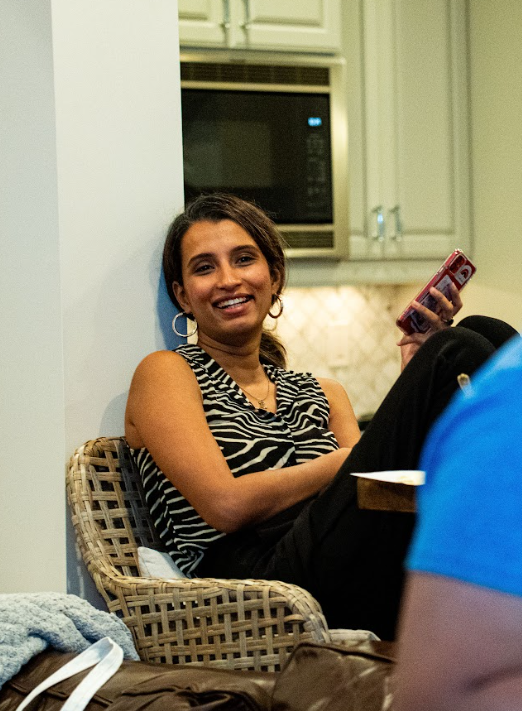
By Lubaina Plumber I remember being 21-years-old, a wide-eyed, aspiring human rights lawyer in Bombay (Mumbai for those who don’t properly identify with the ethos and pulse of the city that never sleeps) when I first stumbled upon, completely accidentally, the grave violation of female genital cutting (FGC). Suddenly, it all came rushing back to me. The event, the place, the people, the gross invasion of my body, my privacy and my rights. I froze in time to realize that this was not just a human rights issue I was researching for a work project, but also something I had survived as a meek 8-year-old child. Through this enlightenment came my connection to Sahiyo. Whilst all concerns around the protection and rights of human beings were within my realm of redressal, I knew at that moment that FGC was personal and a cause I felt deeply triggered by. This harmful practice angered me not only for every single person who endured it, but also for myself and my own experience. Once something becomes personal to you, it is seldom something you can let go of. Advocating against FGC and creating safe spaces for survivors and allies to engage in open dialogue and sharing became a primary focus for me, ultimately leading me to finally attend the Sahiyo in-person Activists Retreat in 2023. My activism and journey came full circle when I sat around the beautiful living room of a fellow Sahiyo member who graciously hosted a group of passionate, remarkable people in her home. The moment I landed in Atlanta, I remember feeling slightly nervous. I had just immigrated to the United States six months prior and this was my first interaction with a group outside of my small workplace. I felt I was venturing out in an unfamiliar country to discuss deeply personal things. After spending three glorious days with the other participants, I can say I have now found people that feel as familiar as my own (brb, wiping tears). I’d be lying if I said I did not thoroughly enjoy the delicious meals, warm hospitality, and thoughtful welcome package/goodie bags as well. But what stood out most were the conversations I had with everybody present, about FGC and about everything else just the same. The Retreat was extremely well-planned and executed even better. I am a staunch proponent of open, authentic, non-judgemental spaces, and the Activists Retreat delivered on all fronts: confidentiality, comfort, and thoughtful sharing. I assumed I knew everything about FGC, given my extensive preoccupation with the issue, but I gleaned SO MUCH from this experience. The toolkits, guest speakers, group activities, and personal anecdotes of others were tremendously enlightening; they helped keep me apprised of the global discourse on FGC. I felt I was not alone in this peculiar world, feeling intensely passionate about issues important to me; there are other kindred souls out there too. The sense of sisterhood, profound empathy, and unadulterated opportunity to be vulnerable is what I will cherish for a long time to come. I am hopeful for the future. For myself and millions of affected individuals needing a platform, a team, an understanding ear, and tangible redressal measures. I discovered I could visit an OBGYN in the United States and share that I underwent cutting, inquiring exactly how my body differs. This notion would not have even crossed my mind before attending the Activists Retreat. I have become even more vocal, forthcoming, and resolved in my mission to mitigate FGC. I have initiated difficult dialogues, broaching the subject with adequate context. I have learned to be patient with ignorance (still letting out the odd sigh and eye roll), gentle yet assertive with the uninformed, and fierce with those who willfully endorse these violations against people/children with or without family consent. I do not take no for an answer when it comes to educating somebody on FGC and that courage has grown knowing there is a whole community who will back me up with loving reinforcement when I need that gentle push. Thank you team Sahiyo for including me in your passion, purpose and party! SEE YOU AGAIN NEXT YEAR 🙂 Learn more about Sahiyo’s Activists Retreat here.
FGM/C Sexual Education & Prevention: An Interview with Dr. Reham Awwad
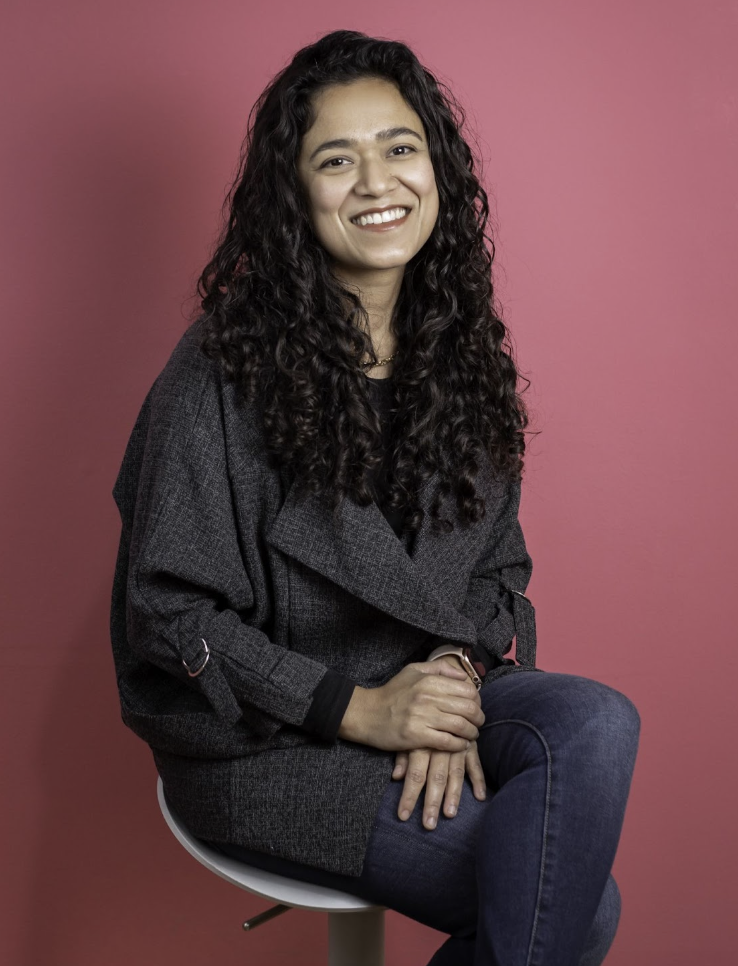
By Kiah Leone In celebration of World Sexual Health Day, I sat down with Dr. Awwad, the co-founder of Egypt’s first-ever multidisciplinary female genital mutilation/cutting (FGM/C) clinic, Restore, to learn about the care and support offered to FGM/C survivors as they navigate relationships with their bodies, their partners, and themselves. The discussion is shared in two parts: in the first part, I explored how FGM/C impacts survivors’ sexual health and the types of surgical and non-surgical therapies Restore offers their patients. In this second part, I discuss tailoring sexual education for survivors and Restore’s role in FGM/C prevention. Starting conversations around sex and sexual health within the context of FGM/C can be difficult, particularly in countries like Egypt where these topics are considered taboo: “Kids here [in Egypt] don’t grow up in schools with sex education classes or health education classes, so [FGM/C survivors] really don’t have any familiarity with that part of their body… They [survivors] don’t speak to their families [about sex], they can’t speak to their friends…you’ll find that no one spoke to their moms either and they kind of just figured it out on their own.” To help ease survivors into conversations surrounding sex and sexual health within a clinic setting, Dr. Awwad begins by getting a sense of the type of sexual education her patients have already had, if any. Depending on the patient, Dr. Awwad might provide them with a mirror and ask if they would like to see their genitalia. If the patient agrees, Dr. Awwad explains each of the genitalia’s parts. “I usually like to explain specifically about the clitoris – the anatomy of it, how it works. We talk about reaching orgasms, how a woman reaches them, and the misconceptions that are around vaginal orgasms versus clitoral. I try to give [survivors] as much information as possible.” To further assist survivors, Restore’s psychologist and sexual therapist run a program to help survivors re-identify with their bodies. “It’s all about their body…normal sensations, pleasurable sensations, all of these things…the results [from the program] have been really good so far, because the women learn how to reconnect with their bodies and feel comfortable.” Dr. Awaad emphasizes that education not only improves survivors’ understanding of sex and sexual health, but also acts as a prevention tool. “The thing that we can do to reduce FGM/C in Egypt and actually start seeing numbers going down is education. We have to educate our kids – we have to put it in the school system – they have to know.” Dr. Awwad believes that education will give young people the courage to speak against the practice. “Even in coming to report FGM/C cases, with a little girl [if you teach her] she’s going to say no, no, no, no, you can’t do that to me, you know, and she might call and report her parents or tell somebody that would help her.” This is why Dr. Awwad has connected with, Tadwein Center for Gender Studies, a research-based NGO that focuses on prevention and is producing some of the best research in Egypt around gender-based violence interventions. “The prevention aspect has to change. It’s not working…we are going to start a campaign with new messaging and test it in an area to see how people respond to it. It is [made] for the men and it will be based around sexual health, because that’s what men will actually care about…I hope it works and we get some good results. But I think that this is why we have to start approaching it from a different aspect”. By teaching men, Dr. Awwad believes it will help men to better understand the impacts of FGM/C on the lives of the women they’re closest to and hopefully encourage them to say, “I don’t want them to live like that”. “That’s why awareness is so important, letting people know the impact that it [has] on these women’s lives” For Restore it is important that they continue doing whatever they can to support survivors and raise awareness. Whether that is developing new prevention campaigns, holding events to provide free medical checkups for survivors, also to educate them about FGM/C, or participating in research that improves the care for survivors. To find out more about Restore please visit Restore’s website or follow them on Instagram.
Washington State makes progress to end FGM/C
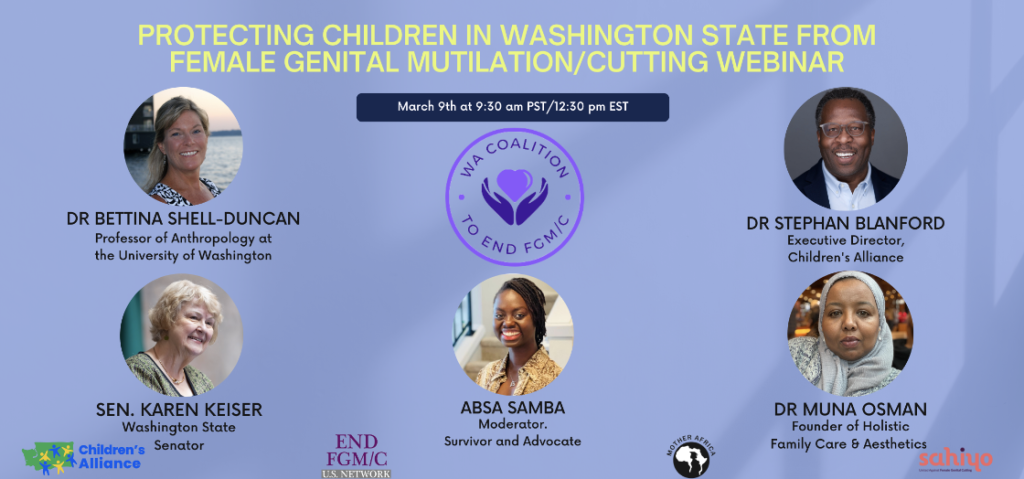
Washington State is one of the remaining ten U.S. states without any law that addresses and prohibits female genial mutilation/cutting (FGM/C). FGM/C is a human rights violation and form of child abuse and gender-based violence that involves removal of the female genitalia for non-medical purposes. This gap in state protection has left children in Washington vulnerable to this harmful practice. In fact, an estimated 25,000 women and girls in Washington are living with or at risk of undergoing FGM/C. The Seattle-Tacoma-Bellevue metro area is considered the 5th highest metro area in the U.S. in terms of the size of the FGM/C-affected community. In 2019, a change.org petition that gained 170,000+ signatures was started to address this lack of protection for children. “Washington state is #18 for gender equality by US News and World Report. Gender Equality should be a priority in Washington state. Social, political, and economic equality and equity is limited when we don’t have the full participation of all of our women and girls. Harmful customs or social norms that contribute to GBV (gender-based violence) including FGM/C in addition to costing lifelong pain and suffering can hold women, girls, and others who have undergone FGM/C back from full participation.” ~ Absa Samba The Washington Coalition to End FGM/C was created to educate people in the state about the need for policy solutions to address FGM/C. The coalition is made up of survivors, community organizations, legislators, advocates, and others. On March 9th the Washington Coalition to End FGM/C held a webinar in partnership with Sahiyo, The U.S. End FGM/C Network, Children’s Alliance, and Mother Africa to help shed light on how FGM/C impacts those living in Washington state, and to discuss policy level solutions, community-based programs, and education initiatives needed to protect women, girls, and others from undergoing this harmful practice. Speakers included: Absa Samba, a student, activist, and survivor of FGM/C who helped found the Coalition and made contact with Washington Senators to sponsor a bill against FGM/C, Bettina Shell Duncan, a Professor of Anthropology at the University of Washington in Seattle who has done extensive research on FGM/C, Stephan Blanford, the Executive Director of Children’s Alliance, Muna Osman, Doctorate Prepared Nurse Practitioner, founder of holistic family care clinic, a co-founder of mama amaan research team, and survivor, Senator Karen Keiser (D-WA 33), sponsor of SB 5453, a bill that will make FGM/C illegal in Washington State. Speakers helped to shed light on the issue of FGM/C by discussing what it was, who it impacts, and most importantly, that it does affect residents of Washington. The vital need for policy to end FGM/C amongst future generations of children was also discussed. “The pressure to undergo FGM can be intense for girls and their families…the solution is to coordinate change in families and communities so that people are not acting in isolation. If everybody can agree to abandon the practice, the negative sanctions can be lifted…When other members of the community are given the power of law to strengthen their position, the law becomes a powerful tool for enhancing their power to persuade others that this is a practice that’s no longer relevant in this context and in this time.” ~ Bettina Shell Duncan, panelist The coalition has supported policy work by working on the passage of Washington Senate Bill 5453. This bill, informed by the Washington Coalition to End FGM/C, has been championed by state Senator Karen Keiser and, if passed, will prohibit FGM/C on minors, creates a civil cause of action for survivors of FGM/C, and establishes an education program to prevent FGM/C in Washington. “This education component of this bill is huge for our [Somali] community. I think this bill coming from us, for us, by us, to help the community, I think it is a beautiful thing. I am confident that the community will accept it.” ~ Muna Osman, panelist During the event, audience members were also called to action to support the bill by signing onto an action alert. As of March 29, Senate Bill 5453 has passed the Washington state Senate unanimously and is making its way through the House of Representatives. Similar legislation was introduced in the Washington legislature in 2019 but it did not pass; a key difference between the two campaigns is that this year in 2023, the bill is backed by a strong coalition of directly-impacted survivors, advocates, community members, health practitioners, human rights activists, policymakers, faith based groups, and other allies. Whereas in 2019, there was a lack of inclusion of FGC impacted communities who lived in Washington in the crafting of the legislation. The unanimous support from legislators this year is a strong indication that Washington state will become the 41st state to pass a law to prohibit and prevent FGM/C.
Washington Coalition hosts educational webinar on female genital cutting

On March 9th, the Washington Coalition to End FGM/C, in partnership with Sahiyo, The U.S. End FGM/C Network, Children’s Alliance, and Mother Africa, held a webinar called Protecting Children in Washington State from Female Genital Mutilation/Cutting with the goal of drawing attention to this human rights violation and how it impacts children in the State. The webinar was also held to highlight the need for Senate Bill 5453, which would make female genital cutting (FGC) illegal in the state, provide civil remedies for survivors, and call on education programs on FGC to be created. A 2016 study by the Population Reference Bureau estimated that 25,000 girls and women in Washington State are living with or at risk of undergoing FGC. The study also ranked the Seattle-Tacoma-Bellevue metro area as the 5th highest metro area in terms of size of the FGC-affected community in the U.S. The webinar hosted a panel discussion in which speakers Absa Samba and Muna Osman shared their personal experiences with FGC as survivors and activists working to end the practice. Researcher Bettina Shell-Duncan discussed how research supports the need for legislation to change social norms around communities believing that FGC had to continue for the good of the child. Finally, Stephan Blanford, Executive Director of the Children’s Alliance highlighted how the state has seen other sharmful ocial norms regarding children change through policy in the state and how he is confident the same could be said if a law on FGC were created. Watch the recording of the webinar here: [youtube url=”https://www.youtube.com/watch?v=pZEefGBUTzQ”]
Research: The impact of integrating FGM/C within domestic violence support services

How to have a dialogue: Storytelling & Conversations

By Huda Syyed It took me a while to realise that research isn’t just about crunching numbers and gathering quantitative data. When dealing with issues such as female genital cutting (FGC), human interaction and communication can play a more important role than numbers; to open up and speak about one’s experience of FGC requires a high level of trust and safety. It is important to create a safe and trusting place for those who have survived FGC and are sharing their stories. I think this is why it’s best to let survivors narrate their own stories and navigate conversation at their own pace. In my short experience as a researcher, I learnt how important it is to have conversations that relay the stories and backgrounds of people. Without understanding the stories of people, it is impossible to collect qualitative data about culture and communities. Interviewing research participants also has an element similar to storytelling because people can share details about their background, an event or even a practice. Consent and comfort are primary indicators of whether or not a person is willing to share their thoughts, and I think it is important to acknowledge these indicators before starting a conversation to ensure that there is an ethicality to storytelling. Any hints of discomfort and hesitation on the part of the survivor should be taken seriously to make sure that re-traumatization does not occur. The well-being and readiness of people should be of utmost priority to researchers, because true storytelling does not come from a place of coercion or reluctance. Storytelling is an effective way to open dialogue or start a conversation about FGC. Voices to End FGM/C, a collaboration between Sahiyo and StoryCenter, is an example of survivors sharing their experiences to create more awareness, understanding, and public dialogue about the practice, with a prioritized sense of agency in creating their own story. What began with Sahiyo co-founder Mariya Taher sharing her own story and encouraging other women in the United States to come forward with their stories has had a ripple effect, and we continue to see Sahiyo engaging in extensive dialogues. Other Sahiyo programs like Bhaiyo were created to include men in this necessary dialogue, as well as “to provide love, support, and community towards the advocates and survivors working to end FGC.” Something that started off among women has grown into a larger platform where friends, fathers, brothers and husbands are coming forward to end FGC together. The biggest takeaway from this is how storytelling and conversations created a domino effect and led to more people learning and talking about FGC. From a research perspective, storytelling and conversations can lead to more data, which helps us understand the practice and its impact. My research focuses on Pakistan, where there is very little data and no public record of FGC, thus creating a huge research gap yet to be explored. I think storytelling and conversations could be the start of creating more awareness and understanding of FGC in Pakistan. Since any topic that deals with female genitalia or sexuality is seen as shameful in Pakistani society, it may take a while for people to engage in open dialogue about FGC. Due to cultural and religious connotations, people are hesitant about discussing such topics because they are considered inappropriate. Patriarchal undertones within Pakistani society frame women’s bodies as non-autonomous and often under the surveillance or submission to the male figure. Honour killings and other gender-based violence crimes take place under the notion that women’s bodies carry the honour of husbands, brothers or fathers. These assumptions about women and their bodies probably adds to the invisibility or lack of dialogue regarding female genital cutting (FGC). It is not uncommon to find qualitative researchers exploring topics of gender-based violence and women’s rights through stories and narratives. It gives social scientists a deeper insight into how culture, gender, and society work. In such cases, I don’t think quantitative data can capture people’s experiences or the cultural or religious attributes attached to them. Storytelling and conversations give researchers the space to gather data as listeners or bystanders, while allowing the story-teller/interviewee/conversationalist to share details on their own terms. I will end my thoughts on this note: “If story is central to human meaning why, in the world, is there not more storytelling?”
